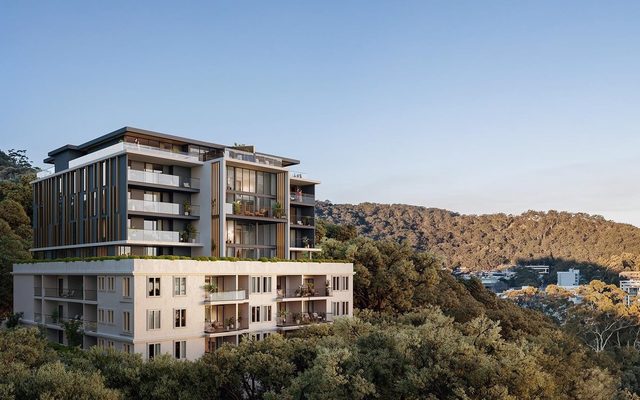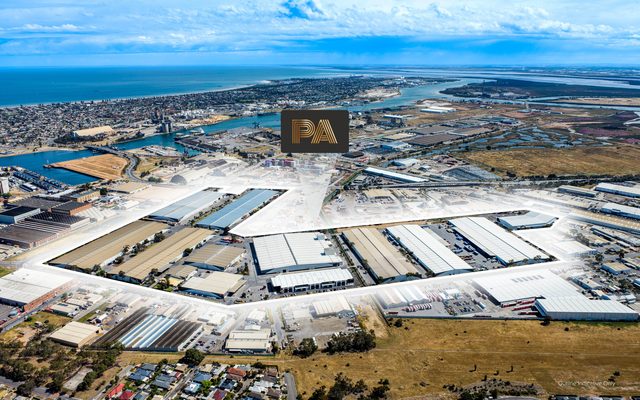This article is from the Australian Property Journal archive
CENTURIA Capital Group has forecast earnings and distributions growth in the coming year as it continues to embrace tomato glasshouses, data centres and private credit, while it is eyeing off a suite of opportunities across the ditch.
The real estate funds manager – which has a core business of unlisted funds, flagship office and industrial REITs, plus alternatives – delivered on its FY24 operating earnings per security guidance of 11.7c per security, down from 14.5c in FY23, and distribution guidance of 10.0c, which was down from 11.6c.
Centuria recorded a statutory net profit after tax of $102.2 million, slightly below FY23, and group operating profit after tax of $94.7 million.
Its group assets under management (AUM) stabilised at $21.1 billion, including $12.3 billion of unlisted real estate, $6.0 billion of listed real estate, $1.9 billion of real estate finance and $0.9 billion of investment bonds.
Centuria touted its expansion in alternative sectors, in real estate finance – through Centuria Bass Capital – growing 46% to $1.9 billion and agriculture, via the Centuria Agriculture fund (CAF), up 21% to $0.64 billion.
More than 20% of the group’s real estate platform is now weighted to alternative real estate sectors, which have collectively increased AUM by $4.1 billion since 2019.
“I never thought I’d be proud of just holding our AUM. But we’ve held our AUM in one of the trickiest periods I’ve experienced,” Centuria joint CEO John McBain told Australian Property Journal.
“A lot of our competitors didn’t.
“The alternatives helped us do that.
“We’ve put very firm forecast profits out, up 2.5% earnings, up 4% distributions for FY25.”
Centuria offered FY25 operating earnings guidance of 12.0c per security and distributions guidance of 10.4c per security.
Centuria again expanded its glasshouses portfolio in recent months with the circa $100 million acquisition of Katunga Fresh’s 21-hectare tomato-growing facility in Victoria’s Goulburn Valley.
“Investors want something they can believe in for the medium term and with some assets having 20-year leases with fixed reviews every year or CPI reviews, it’s actually very compelling, particularly when it’s like critical infrastructure,” McBain told Australian Property Journal.
“It’s something we started planning in COVID – we were looking at the ag sector pretty closely and we knew there were a lot of assets on the sidelines that had everything we wanted.
“All the other ag competitors had full operating risk and no one thought we could do it. It really appealed to our business. Now I think we own five of the 14 large-scale truss tomato glasshouses in the country – the largest one being 30 hectares and we built a fund around it and that grew to just under $500 million. The good thing about that is it appealed to our retail business, who really never stopped investing.”
“We’ll definitely buy more ag.”
He said Centuria’s investors have “loved” its move into private credit.
“And because during that difficult period where it’s hard perhaps to get a property fund to work when deposit rates are quite high, it had good returns – 7%, 8%, 9%, sometimes more, but relatively short duration. You could be looking at 14 months, 18 months, 20 months.
“It was very appealing to our clients. So we think there’s a lot more growth in that business. It’s a very big product that this is out there.”
“What gets us up in the morning is getting into something like ag that no one’s doing, and all of a sudden building a half a billion dollar fund, or getting into private credit and putting a $2 billion book together,” McBain said.
Meanwhile, at 818 Bourke Street in Melbourne’s Docklands, which struggled with vacancies, Centuria has just secured a 10-year lease with ResetData for an edge data centre of up to 1.5 megawatts in using proprietary liquid immersion cooling technology, which could boost the value of the building by 10% to 15%.
“Not every office block will suit it. You have to have quite a lot of unutilised electrical and potential electrical load available. We looked through our portfolio and we found 12 to 15 buildings that would probably suit it.
“That’s not for FY25 so much as FY26. But again, you’ve got to plan for the future.”
He reiterated that at the “heart and core” of Centuria is its unlisted property syndicate business.
“They are highly profitable – 60% of our assets by value are unlisted. They probably comprise 75% of our profit.”
New Zealand a “fantastic” opportunity
Centuria is eyeing off opportunities in New Zealand as the interest rate tide begins to turn.
“They’ve had their first cash rate reduction of 0.25%. Now, they’re higher than us. Their official cash rate was 5.5%. They’re predicting another 100 basis points of rate reductions in their cash rate by December. So their deposit rates are going to go from 6% down to 4%,” McBain said.
“The curve over there used to have to borrow money at 8%, now it’s 6%. So we’re going to dust off all our projects and start creating funds like crazy in New Zealand.
“It’s a fantastic opportunity for us.”




